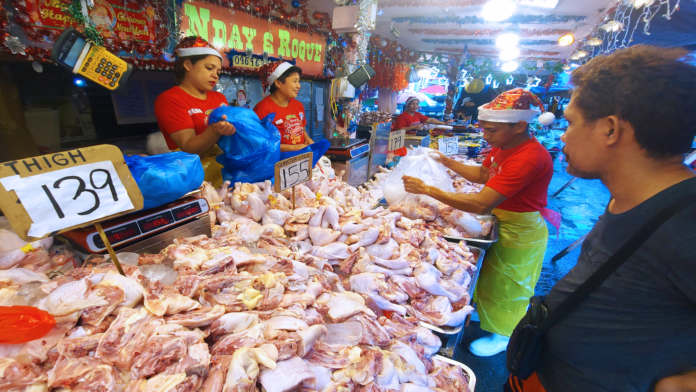Several areas in Eastern Visayas have set up animal quarantine checkpoints and imposed a temporary ban on live chicken and poultry products from Kananga, Leyte, amid the bird flu scare.
The towns of Matag-ob, Palompon, Isabel and Merida issued respective executive orders prohibiting the entry of live and wild poultry animals into their areas.
Mayor Ramon Oňate of Palompon said Friday that the order was meant to protect not only the big poultry in his town but especially the backyard raisers.
Palompon is situated 38 kilometers from Kananga town or about 40 minutes of land travel.
In Matag-ob town, Mayor Bernardino Tacoy formed a task force to deal with the situation affecting chickens and control their possible spread.
Just next to Kananga town, Tacoy ordered village officials to be vigilant and immediately report possible cases of bird flu in their communities.
For his part, Mayor Rolando Villasencio of Merida town said they need to protect the welfare of his people and make sure that the avian influenza will not affect their town considering they have two poultry farms also owned by the same family that operates the farm in Kananga with bird flu-infected chickens.
Baybay City Mayor Jose Carlos Cari also issued a directive banning the entry of chicken and other poultry products from Kananga town.
“However, live chicken, raw chicken meat, and processed poultry meat products coming from Southern Leyte, Cebu City, and other towns and provinces that do not traverse the territorial jurisdiction of places with declared incidents and cases of the avian influenza virus will be allowed subject to the presentation of documents,” Cari’s said.
Also, the provincial government of Eastern Samar ordered the banning of entry of any poultry products from Leyte province.
Governor Ben Evardone issued an executive order mandating and ordering personnel who are manning border and animal quarantine checkpoints that all live poultry, eggs, and chicken dung coming from Leyte should not be allowed to enter the province.
Bird flu scare was reported on March 12 after the municipality of Kananga told the Department of Agriculture about the “abnormal daily mortality” of chickens inside the Leyte Poultry Development Corp.
A month earlier, farm workers observed nasal discharge in some chickens. The onset and exponential mortalities were noted in the first week of March.
The common signs exhibited by the birds included gasping, nasal discharge, and swollen heads.
Two chickens turned positive for bird flu during a rapid test on March 13.
Avian influenza, or bird flu, is a disease caused by infection with avian (bird) influenza (flu) Type A viruses. (PNA)


